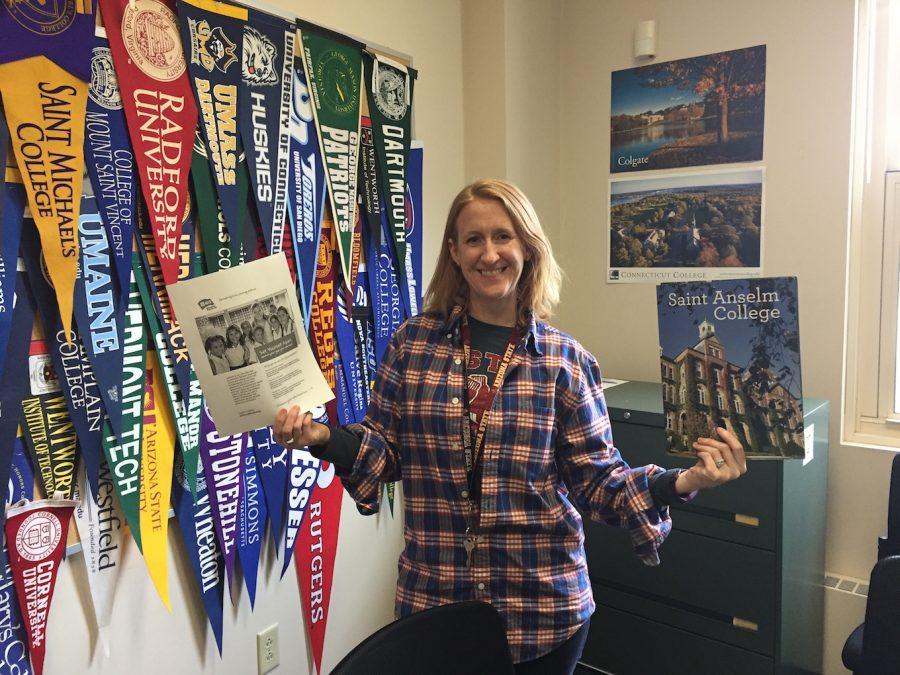Gap Years Prove Beneficial
November 23, 2016
Many students are under the impression that going straight to college after high school is the only option that is available and acceptable. However, an academic break, called a gap year, is an alternative path taken by students after high school instead of going straight to college. There are many different ways that someone could spend their gap year, including: work, volunteer service, and travel. Originating in the United Kingdom during the 1970s, the benefits of a gap year include increased self awareness, experiencing cultural exploration, and learning about a possible career interest. In addition, a student can either take a gap year on their own or enroll in a gap year program. As guidance counselor Mrs. May explains, there are “specific programs that can help you either work, explore, or travel. Or you can do it on your own. Some of these programs are pretty interesting.”
There have been numerous studies stating that taking a gap year can be highly beneficial to some students, while others are more suited to go straight to college. Math teacher Mrs. Werner says that “It would really depend on the kid” and that “It’s a really great idea for some kids, and not a great idea for other kids.” Overall, it really depends on the type of person someone is. There is no right or wrong in this case.
Many people hold the belief that those who take a gap year before college tend to be more energized, mature, and focused. Moreover, students who take a gap year seem to be more likely to have a sense of purpose and more likely to earn their degree in a timely fashion. In fact, 60% of students who took a gap year said the gap year helped them decide what subject to study in college. Also, 66% said they took their academic work more seriously, and 88% thought their gap year added to their employability. In general, gap years allow students to develop as a young individual and not just as another student. Mrs. May explains that a gap year would be especially beneficial “if a student really has a desire to explore, really wants to have an opportunity to travel, has the means to travel financially, and if they’re trying to search for what they want to do.”
On the other hand, others argue that there are several downfalls to taking a gap year. For example, it can be extremely difficult for a student to return to the college application process after their gap year, especially without the tools they would’ve had while still in high school. By taking a gap year, Mrs. May explains that a student might not “have the advantage of having counselors, the school, and everybody else going through the process.” Furthermore, many argue that a student can easily fall out of the academic routine and lose focus on becoming educated. A common point made is how a student’s gap year can inadvertently turn into a gap two years, then five, then ten. “As a parent,” Mrs. Werner explains, “one thing I would worry about is whether they are going to go off course and then not come back to college.” Although this is a reasonable fear to have, it is important to note that over 90% of students who take a gap year head back to college within one year.
Being in school for thirteen consecutive years can really mentally exhaust students. Not only this, but there are not too many opportunities to experience what life has to offer before you are forced into it. As senior Lauren Richards explains, “with school, you’re in a contained environment for thirteen years, kindergarten through twelfth grade. Then once you get out of there, you’re just in college, and then immediately after college you’re just thrust into the real world.” Stressing over homework every night and worrying about standardized test scores can prevent one from experiencing what’s out there. We are not robots, and we should not have to follow a predetermined plan of what someone else has created for us. We need to be able to live and explore to find ourselves for who we are not what people want us to be. And this can be done by taking a gap year instead of going straight to college. Lauren goes on to explain that a gap year is “sort of a practice for the real world,” that will give you “more ability to deal with it once you’re out of college.” According to John Shea from Fosters.com, today’s kids are “drowning in information – and starving for real experience.”

